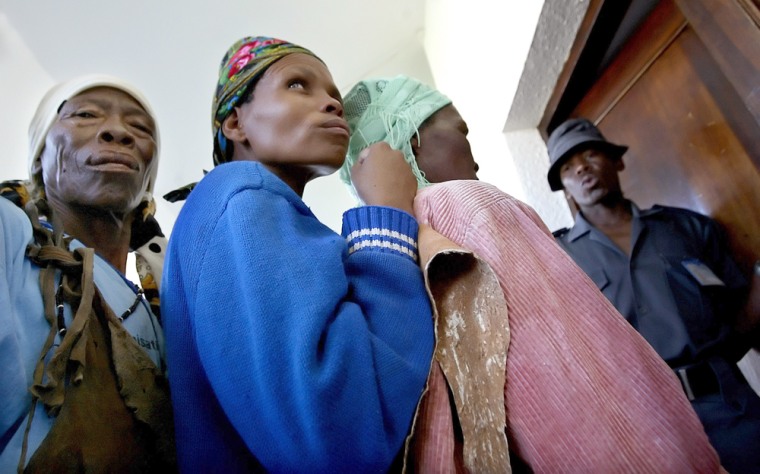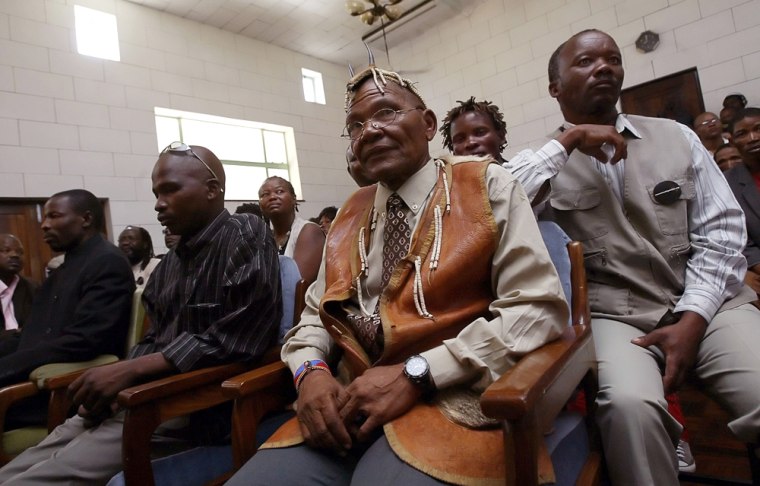Botswana’s High Court ruled on Wednesday that more than 1,000 Bushmen had been wrongly evicted from ancestral hunting grounds in the Kalahari desert and should be allowed to return.
The court ruled 2-1 for the Bushmen in the key issues of the case, which saw Africa’s last hunter gatherers take on one of the continent’s most admired governments in a dispute over diamond rich land and development priorities.
Judge Mpaphi Phumaphi, who delivered the swing vote in the case, said Botswana had been wrong to force the Bushmen out of the Kalahari reserve by cutting off their livelihood.
“In my view the simultaneous stoppage of the supply of food rations and the stoppage of hunting licenses is tantamount to condemning the remaining residents of the Central Kalahari Game Reserve to death by starvation,” he said.
The Bushmen’s lawyer, Gordon Bennett, said the court had opened the way for the Bushmen to return to lands that their ancestors have lived on for some 20,000 years.
“It’s about the right of the applicants to live inside the reserve as long as they want and that’s a marvelous victory,” Bennett said.
Judge: 'Dispossessed forcibly, unlawfully'
The court said it saw no grounds for out-of-court claims by the Bushmen that the government and diamond giant de Beers wanted to clear the land for diamond mining -- the basis for a major publicity push by western pressure groups who have backed the Bushmen’s cause.
Activists say more than 1,000 Bushmen want to go back to the Central Kalahari Game Reserve, an area of desert the size of Belgium which the government has set up as one of Africa’s largest protected nature reserves.

Chief Justice Maruping Dibotelo, delivering a minority opinion ahead of the verdict, said the case should be dismissed.
“The contention of the applicants that the government unlawfully deprived them of their land ...must fail,” he said.
But Judge Unity Dow disagreed, saying Botswana’s government had “failed to take account the knowledge and the culture” of the Bushmen when it expelled them.
“In 2002 they were dispossessed forcibly, unlawfully, and without their consent,” she said.
The Bushmen say their way of life was being wiped out as they were re-settled into bleak camps where they were unable to use their traditional hunting skills.
Botswana argued that western activists, who have won the backing of South African anti-apartheid hero Desmond Tutu and British actress Julie Christie, have romanticized a Bushmen lifestyle that vanished long ago.
It says the Basarwa, also known as the San, are a danger to wildlife, that the Kalahari reserve is a poverty trap which stops the San integrating into society and denies them access to healthcare and education.
The government resettled about 2,000 Bushmen mostly in 1997 and 2002 and says all but about 24 voluntarily left the reserve. About half of southern Africa’s 100,000 surviving Bushmen live in Botswana.
